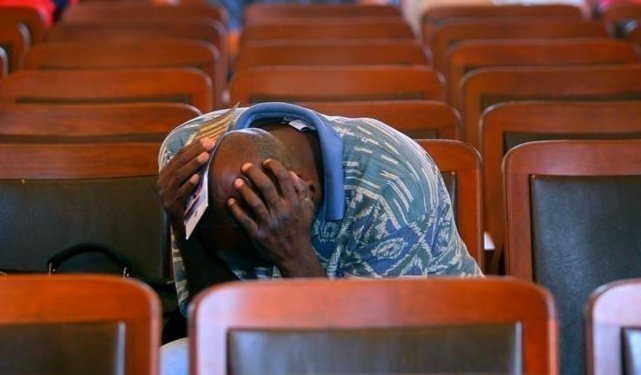How To Help Veterans With Post-traumatic Headache

Over 30% of veterans who had served during the Vietnam War and more than 20% of vets who have served in Iraq and Afghanistan have been diagnosed with post-traumatic stress disorder. Taking all the wars over the last four decades into consideration, close to two million veterans suffer from post-traumatic stress disorder, making almost one-fourth of all Americans affected by PTSD. Many healthcare experts believe that PTSD is becoming an epidemic, especially among veterans. Circa 2012 every eighty minutes one veteran has either attempted or committed suicide.
POST-TRAUMATIC HEADACHE
There are many symptoms of PTSD, the most common symptoms being post-traumatic headache, sleep disorders, depression, cognitive and motor impairments, lack of interest in socializing and difficulty in resuming civilian lifestyle. Blending in is a common challenge most veterans deal with regardless of whether or not they experience post-traumatic stress. Not every case of post-traumatic headache can be associated with post-traumatic stress disorder. This is primarily because a headache, which could manifest itself like a migraine headache or a headache associated with anxiety, might be the only visible problem. There may not be any nightmares, frightening thoughts of combat and other feelings like guilt, fear or perpetual anxiety. Post-traumatic headache can be abrupt, infrequent or incessant, there may or may not be a pattern and the severity of the constant headache may vary. The most important thing, in either case, is to understand the headache causes and treatment.
TRAUMATIC BRAIN INJURY OR POST-TRAUMATIC CONCUSSION
Many veterans have suffered traumatic brain injuries. Concussion or post-traumatic concussion is the most common type of traumatic brain injury. A veteran who has been active in combat has most probably encountered explosions and warfare in the frontlines and is likely to have had some sort of brain injury. In some cases, the injury could be very mild and there may be subtle to no symptoms. The injury could be severe in which case unbearable post-traumatic headache will be one of the first symptoms. There are two things you should know about headache diagnosis and treatment:
Most veterans don’t get properly diagnosed for post-traumatic concussion. All veterans are tested within days – in most cases a week - of being exposed to a traumatic experience. Servicemen and servicewomen are also tested just before they are honourably discharged from their duties. These tests fail to diagnose post-traumatic headache because the veterans may not experience them within such a short time. It may be weeks and in some cases months before veterans experience headache associated with trauma. Many veterans believe it to be a migraine headache and very few veterans will want to study the subject in depth.
Many doctors treat post-traumatic headache like a mild condition and thus the veteran along with his or her family tend to take it lightly. The symptoms that make headaches appear to be mild can become much more serious as the time goes. There is really no way of predicting if a constant headache will subside. The foolproof way is to get to its cause and receive the needed treatment. It’s important to make sure that veterans consider appropriate headache remedies before the symptoms get worse.
EFFECTIVE HEADACHE REMEDIES FOR VETERANS
Most physicians will immediately recommend medicines for post-traumatic headache. These are the same drugs that are prescribed to people suffering from cluster headache or migraine headache. These drugs may provide some headache relief but they would not have any long-term impact on post-traumatic concussion. Also, there are many ways to subdue the pain that do not involve drugs.
It is necessary to focus on one problem at a time. The constant headache will often make a person feel dizzy, they will have poor concentration and may lack focus, other common symptoms are nervousness and fatigue, and so are severe anxiety and depression. It’s best to tackle those one at a time.
Constant headache can be managed with trauma-focused cognitive behavioural therapy, guided imagery and eye movement desensitization and reprocessing. Trauma-focused cognitive behavioural therapy will help veterans learn new skills that can help them process the feelings and thoughts related to the traumatic incidents. Guided imagery helps veterans relax with the help of music or words that evoke positive thoughts and feelings. Eye movement desensitization involves multiple therapies aimed at reducing the frequency and intensity of memories of disturbing events, traumatic incidents and the resulting emotions.
The most important contribution any family member or a friend can do would be to help veterans with stress management. Veterans experiencing post-traumatic headache may find it difficult to drive. They may not be comfortable in chaotic scenarios, be it traffic or crowded malls. They may not like noisy environments which could be anything from a party to festivities. It is imperative that a person battling PTSD gets to spend as much time as they can in environments where they are most comfortable. It could be their home, workplace, somewhere outdoor or indoor or even online. Stress can be triggered by almost anything from work or activities outside the house to the simplest of things – even something like chores piling up can worsen a headache.
HELPING VETERANS WITH POST-TRAUMATIC HEADACHE
A distinction should be made between headache and post-traumatic headache. Veterans must be helped to understand the different types of headache. Mild symptoms must not be ignored and veterans have to be diagnosed with post-traumatic stress disorder and traumatic brain injury from time to time. Being proactive is the only way to avert worsening of PTSD symptoms.
You should remind veterans with post-traumatic headache to maintain an updated medication record. Think about applying for social security benefits, consider appropriate health insurance, help the veteran maintain a log recording their daily physical activity and its effect on the constant headache. Start a headache diary to track your sleep schedule and to bring to your doctor at the next check-up.